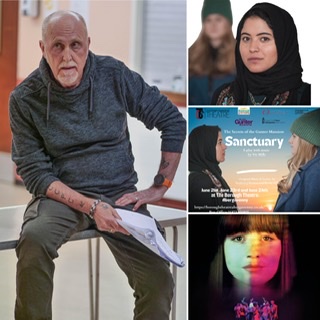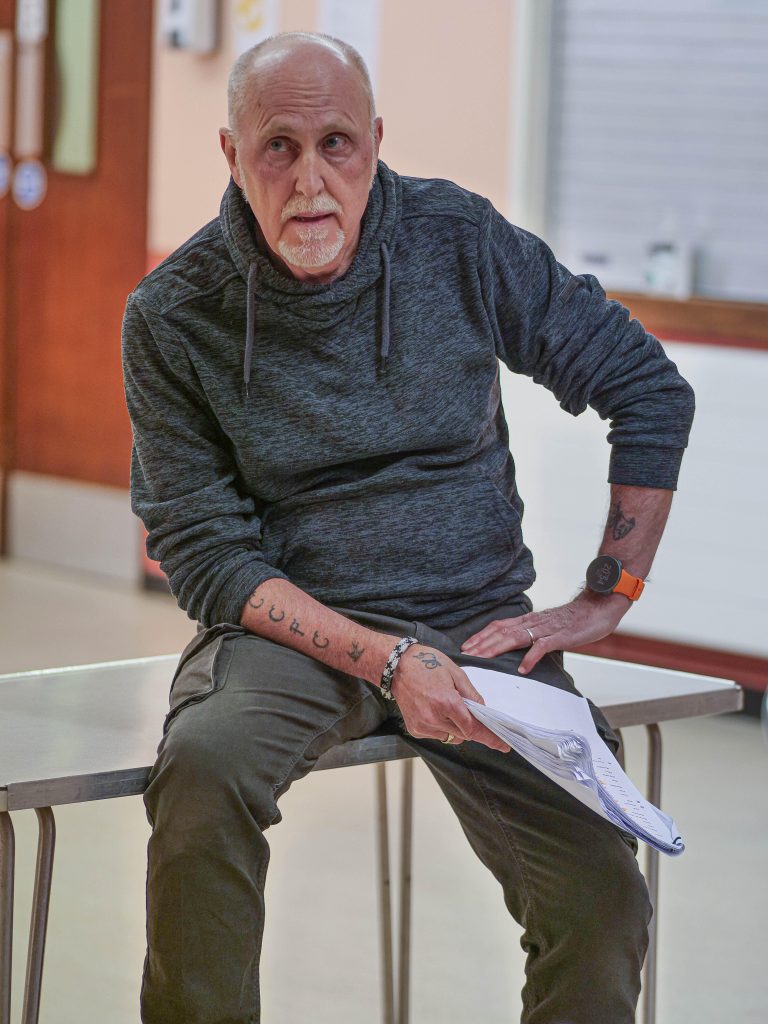
In our latest Playwright interview, the Director of Get the Chance, Guy O’Donnell meets Playwright Vic Mills, they discuss his career to date, his latest play ‘Sanctuary: The Secrets of the Gunter Mansion’ and his thoughts on career support for Playwrights in Wales.
So, what got you interested in the arts?
I came from a non-conformist chapel background, where both of my parents were public speakers, writers, teachers, preachers – so performance of the spoken word was part of what we lived and breathed from infant hood. Music too was central to life. Both my parents were avid readers and we grew up in a home without a television so I read a huge amount – many of the classics before I was eleven.
Why do you write?
That’s probably changed great deal over the years – from poetry as a teenager and young adult to writing for theatre from the time I was about 20. I write because I enjoy the process and each stage of sharing and developing a script is incredibly exciting – the isolation in the first part of the process and then the development of a script with a team is nerve-wracking and exhilarating. Then, right through to the first performance the piece continues to develop and is still changing and hopefully improving until it’s last performance. The chemistry with my director, Neil Maidman, and recently with the Contemporancient Team of poet Dr Kevin Mills, composer Stephen Preston and our actors is hugely exciting.

Can you tell us about your writing process? Where do your ideas come from?
Research around a specific subject – like The Chartists, mental asylums in Wales, Dr Richard Price, ‘The Gunter Mansion’ in Abergavenny – is the starting point – finding where the theatre is in a story, what might be relevant, challenging, inspiring, for contemporary audiences. Then, like most playwrights, I build scenes around conflict. I also search for empathy with every character I develop – they all have to have something of me in them – good, bad and appalling.
I have written theatre with a social and political drive, often linked to an aspect of Welsh history in the last twenty years and that continues to be my focus.
Whilst I usually produce what might be called ‘naturalist dialogue’ as central to a piece, the work itself is not usually naturalistic overall. My great inspiration is Brecht and so music, poetry, ‘chorus’, multiple playing, non-linear structure, are all key tools in creating something meant to evoke intellectual challenge rather than pure entertainment.
Can you describe your writing day? Do you have a process or a minimum word count?
I usually spend a year or so reading around a subject and then write a first draft of a play obsessively and very quickly – maybe within 10 days. I don’t keep any record of how much time I spend at it during those days – but writing comes easily when it comes at all and it usual flies out when it’s ready to. It gets huge amounts of patient re-working for months afterwards, but the arc is there.
Do you have a specific place that you work from?
I have a study and a MacBook Air. I write notes in proper notebooks with a fountain pen. I like fountain pens a lot. I really like fountain pens. Once I start writing the script – its straight on the MacBook though.
Your latest play ‘Sanctuary: The Secrets of the Gunter Mansion’ plays at The Borough Theatre, Abergavenny at 7.30pm on Wednesday 21st June.
“This new play with music tells how, for more than 400 years, Abergavenny has provided sanctuary for those in danger – here the horrors and joys of their secret stories are told in thrilling theatre and music.”
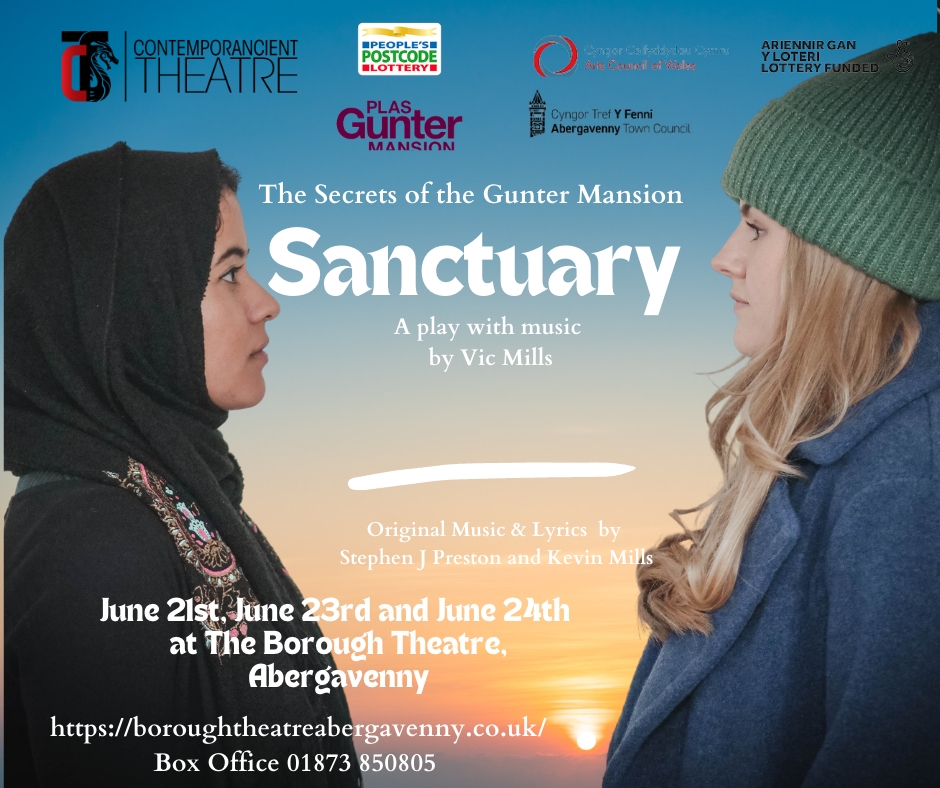
Can you tell us more about the background to this production and your hopes for its production?
This started with reading an historical text about two leaders of the Jesuits being caught in a priest hole in Worcestershire in 1605 and exploring the idea of people being hunted, tortured and killed for their faith but also willing to do the same things to other people, with only marginally different faith. This seemed incredibly relevant to life for people in many parts of the world today so worth exploring. We have worked with ‘The Plas Gunter Mansion’ in Abergavenny, where these priests probably hid in the months prior to be caught – we have linked that with the story of Syrian refugee woman in Abergavenny today – she is not an historical figure but is based on stories of real Syrian refugees in Wales.
We’ve worked with Syrian musicians and our composer to bring the cultures together in music and explore the idea of sanctuary in Abergavenny and in Wales across the ages. It’s a play about the Welsh nation being made up of people from around the world and about the importance of tolerance. But there’s a lot of difficult stuff in the play about people’s willingness to suffer for their beliefs and to make others suffer who do not share them.
Kevin, my brother, an academic and poet, has produced wonderful verse for the piece and has worked with Stephen Preston, our musician/composer to create stunning songs alongside our Syrian musicians. We’ve worked with our close collaborator, film maker Chris Lloyd to deliver a multi-media piece, where film and visual imagery plays a huge part. Our director and dramaturg, Neil Maidman, is someone I have worked with for more than 25 years so we shape a piece together, understanding each others strengths pretty intuitively by now.
We hope that through exploring our shared history, we will learn more about ourselves and those with whom we share our communal lives and spaces.
This will be performed during National Refugee Week and all performances will be free for refugees.
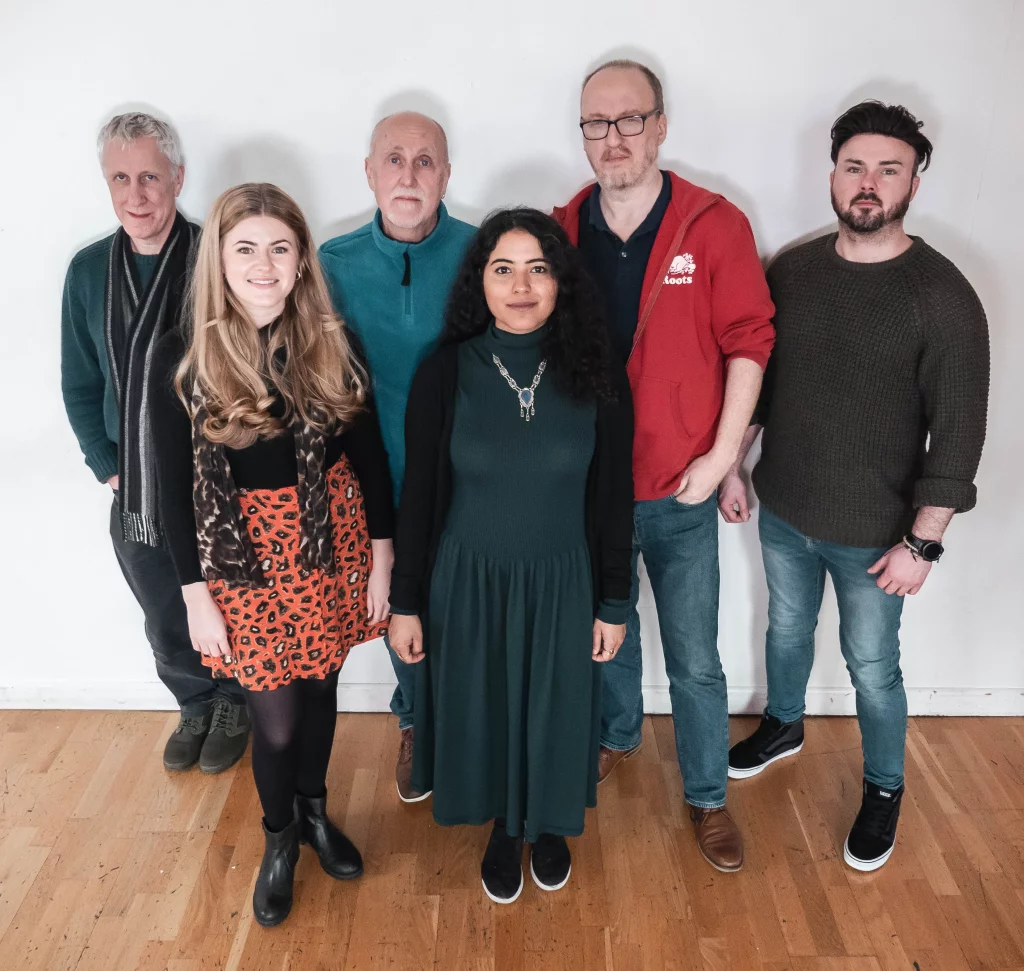
Sanctuary – Cast, Director, Writer, and Lyricist
What role do you think Theatres and Playwrights have in telling the narratives of the citizens of their respective nations?
You can tell from my previous answer that this is a central tenet of all I do as a writer and what this theatre company, Contemporancient Theatre, is all about. Heb Hanes – Heb Hunaniaeth is our motto, and that is at the heart of what we do.
There are a range of organisations supporting Wales based writers. I wonder if you feel the current support network and career opportunities feel ‘healthy’ to you? Is it possible to sustain a career as a writer in Wales and if not, what would help?
I worked as a drama teacher, English teacher and Deputy Headteacher until I was able to retire at 55, and work full time in theatre. I was able to write and get plays produced throughout that time and have had plays of mine produced and performed all around the world. I have never made any money to speak of through that. If a play of mine is performed I get about £50 per performance in royalties.
I spend a huge amount of time applying for funding – far more that I do actually writing or developing scripts. If I had to rely on what I earned from theatre to live, I couldn’t. I ensure that freelance actors, musicians, crew etc are paid union rates and I try to find some money in the budget for writing and script development. I don’t know how anyone writing for theatre could make a living just by writing, unless they were hugely successful.
You are a member of the Get The Chance team yourself and have reviewed a range of productions. Why are you a member of our team of volunteer critics and what value does this opportunity have to you?
I watch as much live theatre as I can, and I usually have very strong opinions about what I experience. Part of the joy of any art is the discussion it evokes – Get The Chance gives people an opportunity to formulate and articulate ideas about performance arts so it’s a vehicle for them and publicity for the event that have attended. What’s not to like about that?
If you were able to fund an area of the arts what would this be and why?
One of my many causes is ‘working class people in arts’ and theatre specifically, of course.
The tradition of great working class actors, playwrights etc that fuelled British theatre has been choked off. I would love to see bursaries or grants for theatre practitioners of working class background to support their work, and organisations like ACW creating funding areas for projects delivered by practitioners from the working class.
What currently inspires you about the arts in the Wales?
The extent to which good work continues to get put on despite the odds.
What was the last really great thing that you experienced that you would like to share with our readers?
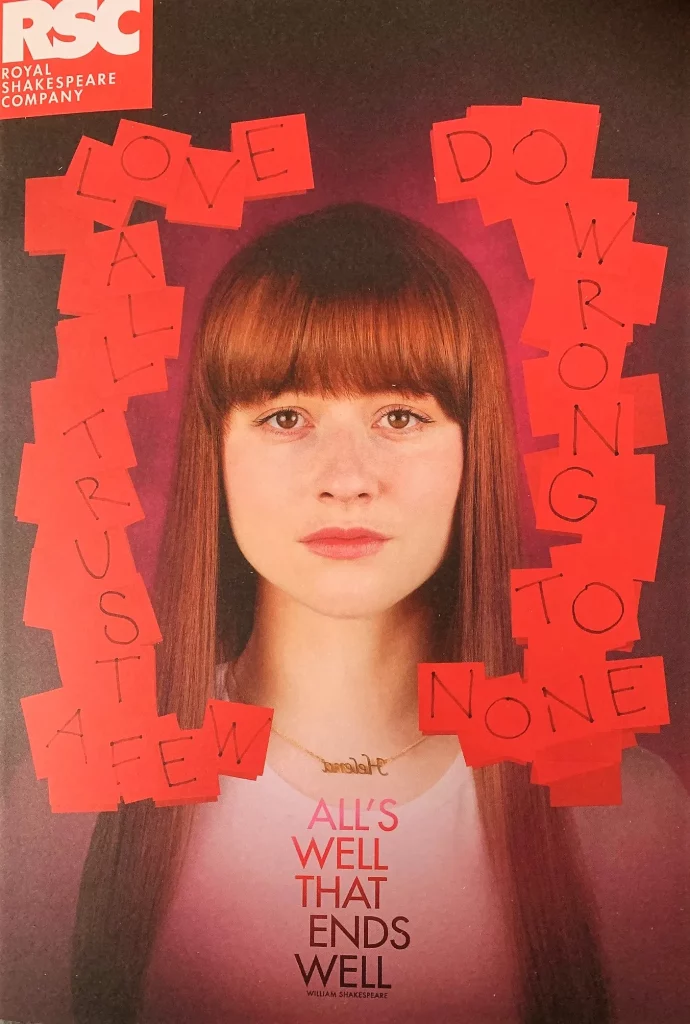
I saw Rosie Sheehy in Alls Well That Ends Well at the RSC Stratford last year. Didn’t know her, or of her, at the time. Stunning, stunning performance – by a kid from down the road. Blistering and inspiring. I love actors who can really speak verse – get verse. Wonderful physical and vocal performance. I love the fact that she was there and blew everyone else off the stage and that she’s a Welsh kid from an ordinary background.

